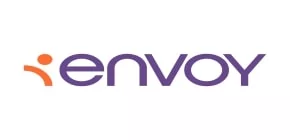Key Points
- The Biden administration will no longer defend the Trump administration's public charge rule
- The U.S. Supreme Court has dismissed the public charge appeal and the rule is no longer before the Court
- Lower court judgments invalidating or enjoining the 2019 public charge rule will become final
- The public charge rule was extensively litigated from its implementation and obligated foreign nationals applying for green cards to provide extensive financial documentation and Form I-944, Declaration of Self-Sufficiency
- USCIS is expected to soon issue a statement regarding when they will cease applying the 2019 public charge rule and the Form I-944 requirement
Overview
The Biden administration has announced that it will no longer defend the public charge rule, implemented by the Trump administration, against forthcoming legal challenges. USCIS is expected to soon issue a statement regarding when they will cease applying the 2019 public charge rule.
What are the Changes?
In February 2021, the Biden administration issued an executive order mandating review of the 2019 public charge rule by the Department of Homeland Security (DHS). DHS has determined that continuing to defend the 2019 rule is neither in the public interest nor an efficient use of limited government resources. As such, the Department of Justice (DOJ) will no longer pursue appellate review of judicial decisions invalidating or enjoining enforcement of the 2019 rule. The rule thereby cannot be enforced per District Court judgements.
The Supreme Court has dismissed the public charge appeal.
USCIS is expected to soon issue a statement regarding when they will cease applying the 2019 public charge rule, including no longer requiring the Form I-944 requirement in I-485 green card applications.
Background
The public charge rule has been heavily litigated since its implementation in 2019 by President Trump. Foreign nationals cannot receive a green card if the government believes they will become reliant on government assistance for their well-being, also known as a "public charge." In 2019, the Trump administration defined the term "public charge" more expansively than in the past. This obligated foreign nationals applying for green cards to provide extensive financial documentation and Form I-944, Declaration of Self-Sufficiency, which increased application preparation time, cost and Request for Evidence (RFE) issuance.
Looking Ahead
USCIS is expected to soon issue a statement regarding when they will cease applying the 2019 public charge rule.
Originally Published 10 March, 2021
The content of this article is intended to provide a general guide to the subject matter. Specialist advice should be sought about your specific circumstances.


